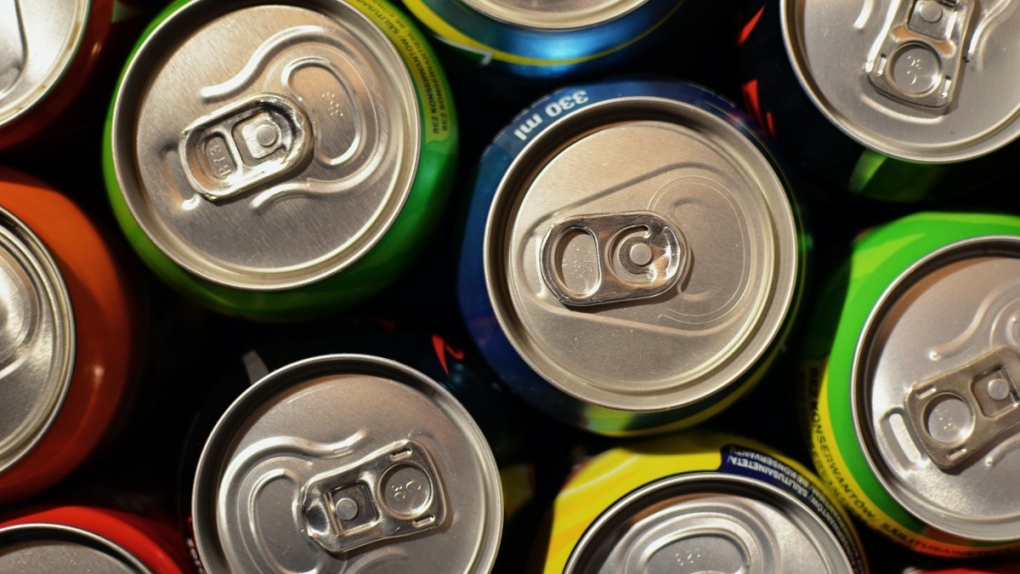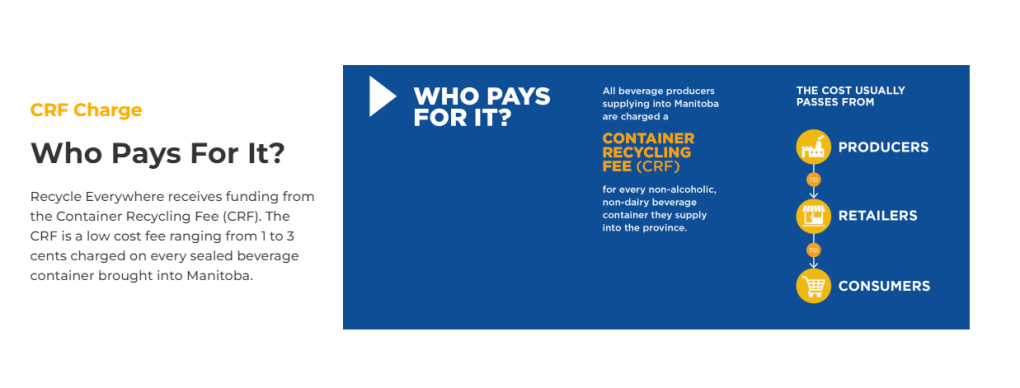Ontario consumers could be hit with new recycling fee on pop and juice starting April 1
 Soda cans are seen in this undated photograph. (Pexels)
Soda cans are seen in this undated photograph. (Pexels)
Ontario shoppers may soon see the cost of non-alcoholic beverages increase as a result of a new province-wide recycling program.
Starting April 1, a “container recycling fee” may be added on to certain checkout receipts for items such as pop, juice, or bottled water.
The fee itself is being imposed on producers of non-alcoholic beverages—defined as a consumable liquid in a ready-to-drink or sealed package—by the Canadian Beverage Container Recycling Association (CBCRA).
The CBCRA is an industry-funded organization made up of multiple large waste producers. Their stewards include giants like Coca Cola, Loblaw Companies ltd and Nestle Canada, among many others.
While these companies are technically on the hook for the fees, it is likely the cost will be funnelled down to shoppers.
“Producers have discretion over how or if it is passed along to retailers. Retailers may then choose to pass it on to consumers,” CBCRA spokesperson Sheri Moerkerk told CTV News Toronto Friday.
“If producers and retailers follow what has been done in other provinces, then the CRF will be reflected on checkout receipts beginning April 1, 2023.”
The fees vary between one and three cents per item depending on the container type.
- Download our app to get local alerts on your device
- Get the latest local updates right to your inbox
CTV News Toronto reached out to multiple companies to determine how the fees will impact shoppers, but did not hear back by publication time.
The initiative, which has been dubbed “Recycle Everywhere,” is part of Ontario’s new Blue Box regulations, which puts the onus on producers of waste to fund and run recycling systems. It also includes a target of 80 per cent beverage container recovery by 2030.
“The Ontario government has established very high recycling recovery targets for the non-alcoholic beverage sector,” CBCRA’s Executive Director Ken Friesen said in a statement.
“CBCRA is responding to those very ambitious targets by implementing a program that addresses all beverage containers, including the approximately 30 per cent of beverage containers that are consumed and disposed of in public spaces or away from home.”
In a December report, the association notes their Recycle Everywhere program in Manitoba achieved a 72 per cent recovery rate as of 2021. This is up from 42 per cent in 2010.
The program’s website appears to confirm that the cost of the program is put on consumers. A chart entitled “who pays for it” indicates the fee usually passes from producers, to retailers, to consumers.
 A chart on the Canadian Beverage Container Recycling Association's Recycle Everything website.
A chart on the Canadian Beverage Container Recycling Association's Recycle Everything website.
The Ontario government did not say whether it knew about the consumer impact of the program. In a statement, a spokesperson for the ministry of the environment said the fees are not imposed by the government, and any change in the cost of associated products is a corporate decision.
“We expect large corporations to pay their fair share, any costs they choose to impose on consumers is a result of their decisions,” Gary Wheeler said.
“The reality is that expenses associated with recycling costs taxpayers millions every year, last year they spent over $168M to cover costs that the large corporations who produce this waste should ultimately be paying. Ontario’s new Blue Box regulations will expand services for rural and remote communities and will save municipalities $171 million in costs every year. In next the next 10 years, Ontario taxpayers will save over $1.6 billion.”
As part of this initiative, CBCRA will also install more than 250,000 new recycling bins in public spaces across the province. The money raised by the CFT will be used for collection and sorting of the containers.
The fees do not impact the producers of alcoholic beverages.
CTVNews.ca Top Stories

Thousands of structures destroyed in L.A. County's most destructive fire
A series of wildfires tore through densely populated parts of the Los Angeles, Calif. area. Five people have been reported dead. U.S. Gov. Gavin Newsom said thousands of resources have been deployed to contain the fires.
Is the Hollywood sign on fire?
As fires scorch Los Angeles, fake images and videos of a burning Hollywood sign have circulated on social media.
U.S. Supreme Court rejects Trump's bid to delay sentencing in his New York hush money case
A sharply divided U.S. Supreme Court on Thursday rejected president-elect Donald Trump's final bid to put his New York hush-money case on hold, clearing the way for him to be sentenced for felony crimes days before he returns to the presidency.
Ex-Trump adviser says Canada in 'difficult position' amid tariff threat, Trudeau resignation
In the face of a potential tariff war, U.S. president-elect Donald Trump's former national security adviser John Bolton says 'Canada is in a difficult position' in part due to Prime Minister Justin Trudeau's resignation and a looming general election.
PM Trudeau says he thinks Trump is using talk of Canada becoming 51st state to distract from tariff impact
Prime Minister Justin Trudeau says he thinks U.S. president-elect Donald Trump is drumming up drama on Canadian statehood to detract from tariff talks.
Canadian travellers now require an ETA to enter U.K. Here's what to know
Starting Jan. 8, Canadians visiting the U.K. for short trips will need to secure an Electronic Travel Authorization (ETA) before boarding their flight, according to regulations set out by the U.K. government.
'True when I said it, true today': former Canadian PM Harper pushes back against Trump on social media
Former prime minister Stephen Harper doesn’t find U.S. president-elect Donald Trump’s jibes about Canada becoming the 51st U.S. state very amusing.
Poilievre says the next Canadian election will be about the carbon price
Pierre Poilievre returned to Ottawa on Thursday after the holidays with a familiar demand for Justin Trudeau: call a carbon-tax election.
More than 150 students sick at University of Guelph, says public health
More than 150 cases of gastroenteritis have been reported at the University of Guelph.

































